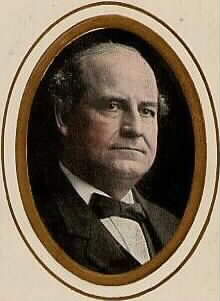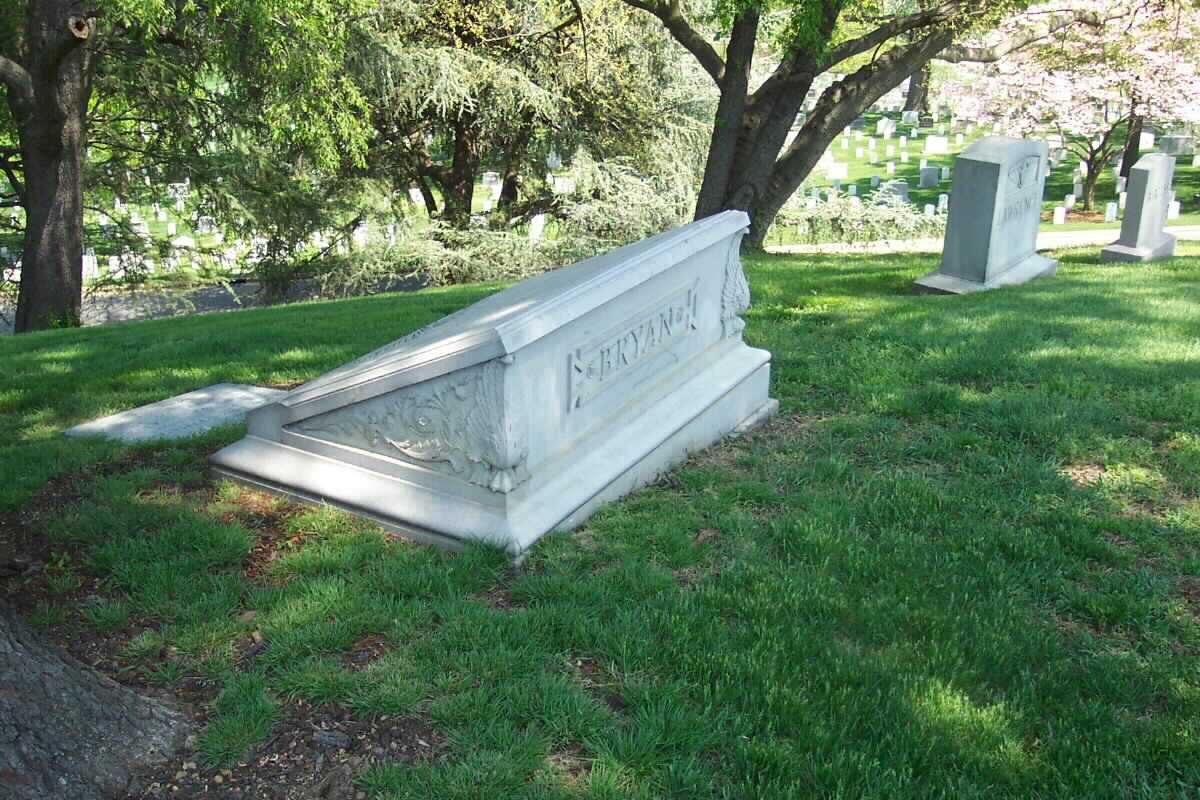January 16, 2004
God vs. apes: William Jennings Bryan, destiny at Dayton, Tenn.
by Chic DiFrancia
“In 1925 down in Dayton, Tennessee, was fought a battle about you & me, in a trial that caused quite a sensation, was it evolution or God’s Creation?”
— from the poem ‘Origin’
If you have seen the movie “Inherit the Wind,” you might have a fair idea of the events that took place in Dayton, Tennessee, for 11 sweltering days in July 1925.
While the performances of Spencer Tracy as Clarence Darrow and Fredric March as William Jennings Bryan created one of the finest pieces of drama ever put on celluloid, it was theater. What happened in Dayton was quite another story.
A major misrepresentation in the film was the portrayal of Bryan. Known as “The Great Commoner,” he was probably the most renown fundamentalist of his time.
Blessed with a resounding voice and command of the English language, the “silver-tongued” Bryan could charm the birds right out of the trees.
He was a three-time presidential candidate. His first try was in 1896 as the Democratic nominee on the populist Silver Party ticket when he lost to William McKinley. As the Democratic nominee four years later, he was again defeated by McKinley. His third and last try in 1908 produced the same results when he lost to William Howard Taft – always the bridesmaid, but never the bride.
In 1912, he threw his support behind Democratic presidential nominee Woodrow Wilson.
Bryan barnstormed the country for Wilson, making stops in Reno, Carson City and Virginia City. Wilson was elected in November and made Bryan his secretary of state, a position he held for three years. Bryan would make the rounds again four years later when Wilson was re-elected in 1916.
On September 18, 1916, Bryan along with Nevada Senator Key Pittman and other dignitaries arrived in Virginia City just before noon, where he was scheduled to speak at Piper’s Opera House. The Comstockers who packed Piper’s that day were not disappointed as “The Great Commoner” spoke about the country, President Wilson and the re-election of Senator Pittman. Bryan also spoke on the subject of women’s suffrage and the importance of passing an amendment to the Constitution that would give women the right to vote.
Four years after Bryan’s speech, the 19th Amendment became the law of the land when Tennessee became the 36th state to ratify its passage in August 1920.
(Tennessee – “The Volunteer State,” home to the Tennessee walking horse, to Jack Daniel’s Distillery in Lynchburg, to the Grand Ole Opry born at Nashville’s Ryman Auditorium in 1925. That year, the real “trial of the century” took place in the tiny hamlet of Dayton, in the southeast part of the state. More than a trial, it was a battle – of ideology, between two ancient warriors with beliefs poles apart – and when the battle was over, only one would be left standing.)
The first sign of trouble was March 21, 1925, when the Tennessee Legislature passed House Bill 185. Also known as the Butler Act, it forbade the teaching of evolution in the Tennessee public school system. Most educators wanted the law repealed as it was a hindrance to any sensible teaching about humans’ presence on Earth. One of those educators was 24-year-old Dayton science teacher and football coach John Scopes.
What “Inherit the Wind” failed to mention was that Scopes voluntarily agreed to get himself arrested for teaching evolution and go to trial in hopes of overturning the law. The irony was Scopes never taught evolution. The whole charade had been cooked up at Robinson’s Drug Store in Dayton by locals who had plans to put Dayton on the map with a sensational trial. The curiosity seekers would come by the hundreds, hopefully with cash, and with any luck, the locals could move a lot of merchandise out the door, giving Dayton a much-needed financial shot in the arm.
So on May 7, 1925, Scopes was arrested for teaching evolution. When it was announced the prosecution team would be headed by the renowned fundamentalist Bryan and Scopes would be represented by the “Defender of the Damned” Clarence Darrow, there wasn’t any doubt something special was about to take place in the Rhea County Courthouse.
The trial began July 10. It didn’t take long for the 68-year-old Darrow, an agnostic, to realize he had his work cut out defending a client accused of teaching evolution in the Bible Belt.
When Judge John Raulston ruled against any testimony being admitted from the learned men of science who were there to enlighten the people about Charles Darwin’s theory of evolution, Darrow knew it would take a miracle to save his client.
That miracle came July 20 when assistant defense council Arthur Hays said, “The defense desires to call Mr. Bryan as a witness.”
The courtroom was stunned! Never in judicial history could anyone recall a case where a prosecuting attorney took the stand for the defense. Judge Raulston, who favored the prosecution, informed Bryan this was highly unorthodox, and if he wished not to take the stand, the court would understand.
For the 65-year-old Bryan the opportunity was too great to pass up. He had come to Dayton prepared for war, and a war he would give them. He would take the stand as an expert on the Bible and defend its teachings against atheists, agnostics, evolutionists and anyone else who believed humans had evolved from a lower life form.
When Darrow turned to the book of Genesis and began questioning Bryan about Jonah and the whale and about Joshua making the sun stand still, Bryan began to get uncomfortable. Darrow continued to probe and punch; Bryan continued to duck and dodge.
The wording got heated as the two ancient warriors went toe to toe. By now, most of the spectators had forgotten who Scopes was, for they had come to see the main event. They weren’t disappointed as the attorneys turned up the voltage.
Clearly, Darrow was in control and going for the kill. Someone would have to jump in and stop the carnage. That someone was Tom Stewart at the prosecution table.
Stewart asked: “What is the purpose of this examination?”
Bryan answered: “He has no other purpose than ridiculing every Christian who believes in the Bible.”
Darrow responded: “We have the purpose of preventing bigots and ignoramuses from controlling the education of the United States and you know it – and that is all.”
Bryan jumping to his feet: “I want the world to know that this man, who does not believe in God, is trying to use a court in Tennessee -”
Darrow: “I object to that.”
Bryan: “To slur at it -”
Darrow: “I object to your statement. I am examining you on your fool ideas that no intelligent Christian on Earth believes.”
And with that last salvo, Judge Raulston mercifully adjourned the court.
July 21 would be the last day of the trial, and when Bryan arrived in court, he looked haggard and old. The day before, he had stood his ground and fought hard for his beliefs, but it was clear he had no more fight in him. Thankfully the trial was over, and the only business left was for the jury to return a verdict, which they did in only nine minutes.
Scopes was found guilty and fined $100 by Judge Raulston. Darrow rose and said he had no intention of paying this or any other fine: he was taking his case to the state Supreme Court.
On July 26, five days after the trial ended, Bryan and his wife attended church in Dayton. After having lunch at a friend’s house, he lay down to take a nap; he never woke up.
The newspapers had a field day claiming Darrow had cross-examined Bryan to his grave. The trial no doubt took a lot out of Bryan, but he had other problems, like diabetes and an enormous appetite for country cooking. The former Colonel in the Spanish-American War was buried at Arlington National Cemetery.
On January 14,1927, the Supreme Court of Tennessee upheld the Butler Law, but overturned the decision handed down in Dayton, citing that the jury, and not the judge, had to set the fine. Scopes had won the case on a technicality, but the Butler Law remained on the books until 1967.
He is buried in Section 4 of Arlington National Cemetery, near Bryan Drive which was named in his honor. He also served as Secretary of State and, briefly, as a volunteer army officer in the Spanish-American War.
Mary Elizabeth Baird Bryan
Grace Bryan Hartway
Another relative, Richard Bryan Hargreaves, PHC, United States Navy, is also buried in this gravesite at Arlington National Cemetery.
BRYAN, WILLIAM JENNINGS
- 3RD NEBRASKA REG’T
- VETERAN SERVICE DATES: Unknown
- DATE OF DEATH: 07/26/1925
- DATE OF INTERMENT: Unknown
- BURIED AT: SECTION 4 SITE 3121
- ARLINGTON NATIONAL CEMETERY
BRYAN, MARY B
- DATE OF DEATH: 07/26/1925
- DATE OF INTERMENT: 07/31/1925
- BURIED AT: SECTION 4 SITE 3121
- ARLINGTON NATIONAL CEMETERY
- WIFE OF WJ BRYAN – 3RD NEBRASKA VOL INFANT
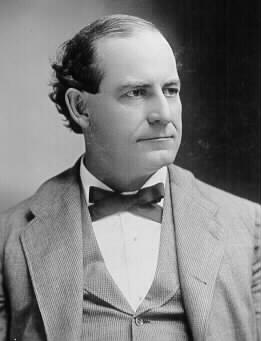
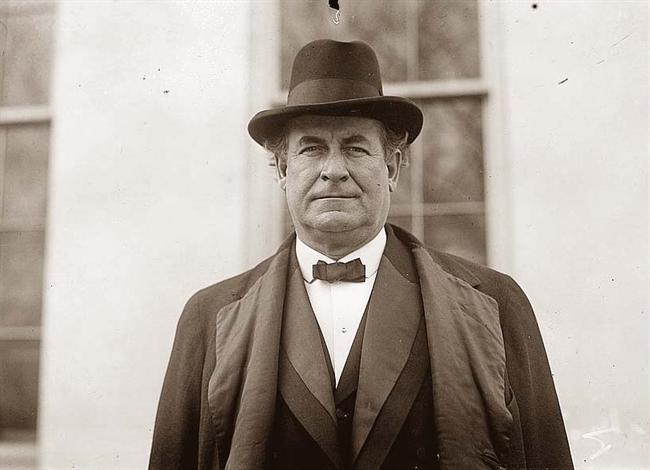
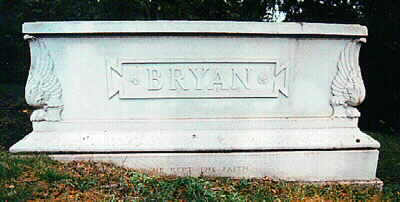
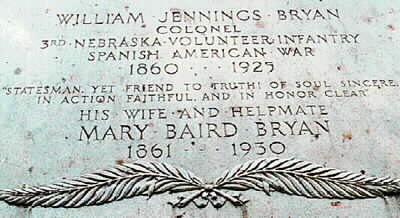
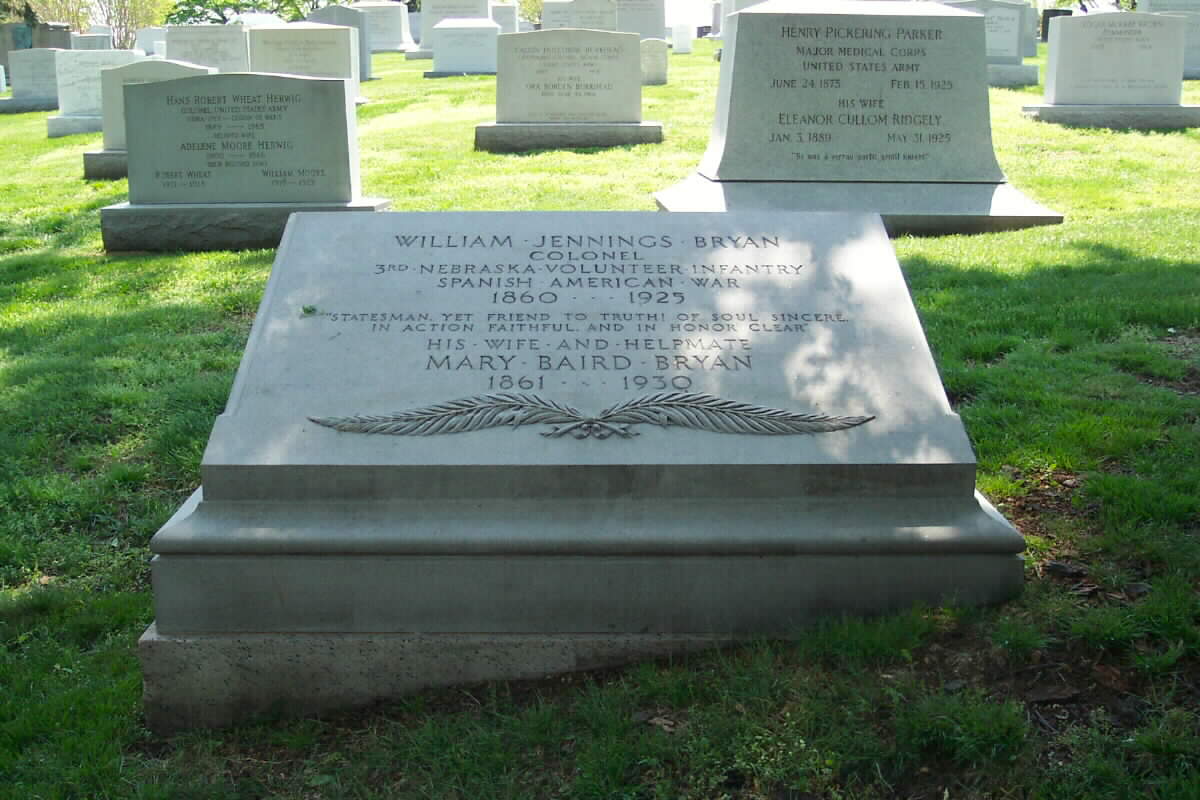
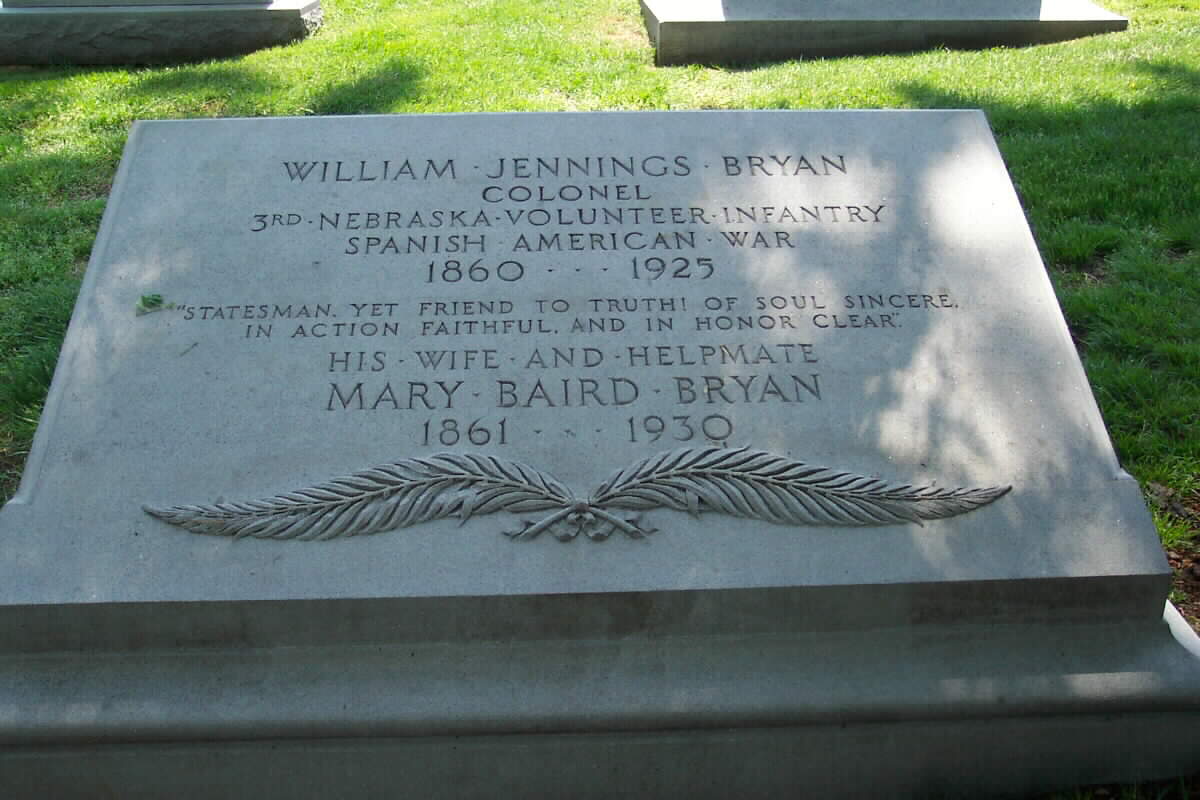
Michael Robert Patterson was born in Arlington and is the son of a former officer of the US Army. So it was no wonder that sooner or later his interests drew him to American history and especially to American military history. Many of his articles can be found on renowned portals like the New York Times, Washingtonpost or Wikipedia.
Reviewed by: Michael Howard

